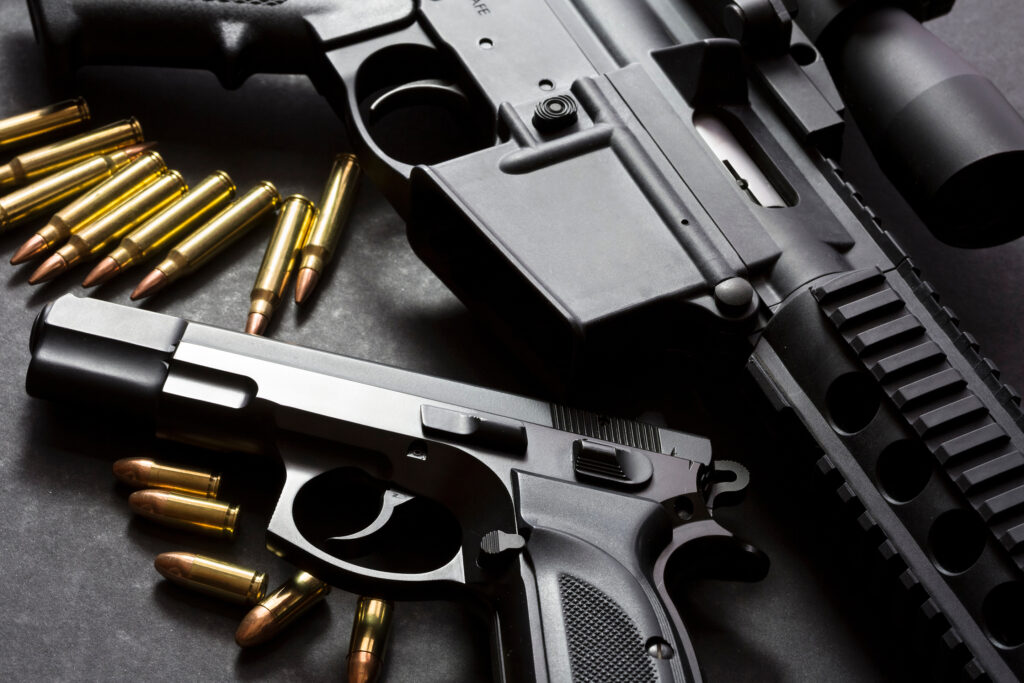
Features
Opinion
Will proposed federal firearms laws reduce gun crime in Canada?
February 9, 2023 By Chris D. Lewis
 Photo credit: © Mariusz Blach / Adobe Stock
Photo credit: © Mariusz Blach / Adobe Stock Quick answer: No, not in my opinion.
When Bill C-21 was first introduced, it was all about reducing legal handgun sales and ownership transfers, which in itself will not have any impact on rising gun crime in this country. It would only stop new and used handgun purchases by those who are either already licensed to possess restricted weapons under Canada’s already robust regulations, or those who are seeking to legally go through the rigorous steps required to be appropriately licensed. More recently, a number of currently legal rifles and shotguns have been added to the legislated ban. Essentially, the legislation will hurt the law-abiding gun community and licensed firearms dealers only. These are not the people that are committing murders or other crimes of violence in our communities – with rare exception.
It’s no secret that the vast majority of gun crime is committed with handguns smuggled into Canada through our porous border with the United States. Robberies, violent interactions between rival street gangs and occasionally the shooting of innocent victims are largely not occurring with legal handguns. Nor are they often happening through the use of rifles and shotguns that are legally owned by licensed hunters and sport-shooters in Canada. There is no statistical data to show that legally owned handguns or the recently targeted semi-automatic long rifles are significant in the murders of Canadians.
Occasionally, crimes do occur through the use of such firearms. Undoubtedly, they are also used at times by those intent on taking their own lives. As tragic as that is, that is not a gun problem, it’s a mental health issue. Similarly, many poor souls have ended their lives through a variety of other unregulated means. We cannot legislate against every potential implement that some may use to injure themselves or others. The Saskatchewan stabbing murders of 2022 and the 2018 Toronto van attack are proof of that sad reality and impossible to prevent through legislation.
Canada already has very strict federal gun controls. True ‘assault rifles’ have been banned for years, as have large capacity magazines. It is also very difficult to legally own a handgun in this country. Background checks, training requirements and safe storage laws contribute greatly to the fact that per capita Canada has a very small fraction of the gun murders of the U.S., where firearm laws are largely weak, inconsistent from state to state, and there are more guns than people.
The RCMP, provincial and local police must work together to deal with those guns that do slip into Canada.
It’s important to note that the Nova Scotia shooter was not licensed to possess any firearms before he took 22 innocent lives there in 2020. He violated many of the current gun laws as he committed the worst of the worst of crimes – murder. He didn’t care about firearms bans and legislation as he carried out his devastating murder spree. Similarly, street gang members across the land are not worried about gun laws when they carry or use smuggled handguns. They are only concerned about financial gain, neutralizing competitors and personal protection. None of the proposed legislation will change that and cause gangbangers to turn to legal careers.
Very recently, a number of organized crime investigations in the Greater Toronto Area netted seizures of large quantities of firearms, many being handguns. Almost all of them were smuggled into Canada and not stolen from legal owners here. In addition, most police chiefs and their crime experts will say that the overwhelming majority of guns used in crimes in their jurisdictions are illegally brought into Canada from the U.S.
There are many socio-economic issues behind the rise in violent crime in this country. Accordingly, more focus and funding are required to discourage high-risk youth from choosing destructive lifestyles, including the gang/gun culture.
What Canada does need to do is strictly enforce the current legislation and keep guns out of the hands of those that for criminal or mental health issues should not possess them. The RCMP and the Canada Border Services Agency (CBSA) have the primary responsibility to enforce our smuggling laws and keep illegal handguns from entering this country. But both agencies are short of personnel, and in the case of the RCMP, beyond responding to calls for service, they have little to no resources left to focus on organized crime enforcement or to stem smuggling. The federal government would be well-advised to focus more funding on those fronts, as opposed to enhanced legislation and useless ‘buy back’ programs targeting currently legal guns that aren’t a threat. The RCMP, provincial and local police must also work together to deal with those guns that do slip into Canada, as well as taking guns away from former legal owners who subsequently show that they should no longer be allowed to own or possess them.
In other words, Canada needs to focus its limited time and money on the real threat to public and officer safety to truly make a difference.
Chris D. Lewis served across Ontario in the OPP, retiring as Commissioner in 2014. He continues to lecture and write on leadership and policing issues, and is the author of the book Never Stop on a Hill. He is also the Public Safety Analyst for the CTV Television Network.
Print this page